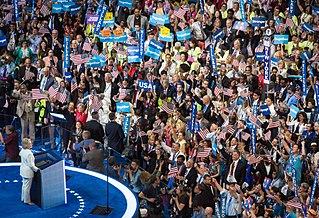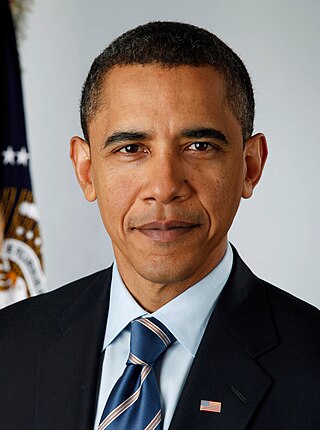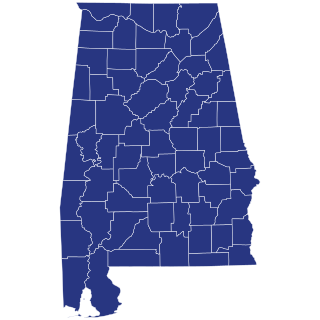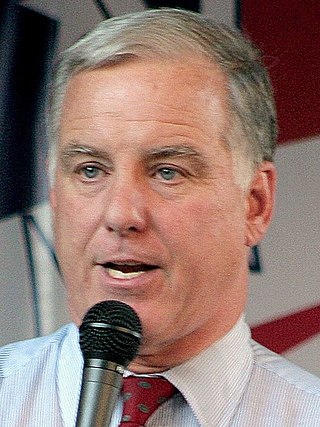
The Democratic National Convention (DNC) is a series of presidential nominating conventions held every four years since 1832 by the United States Democratic Party. They have been administered by the Democratic National Committee since the 1852 national convention. The primary goal of the Democratic National Convention is to officially nominate a candidate for president and vice president, adopt a comprehensive party platform, and unify the party. Pledged delegates from all fifty U.S. states, the District of Columbia, and the American territories, and superdelegates which are unpledged delegates representing the Democratic establishment, attend the convention and cast their votes to choose the party's presidential candidate. Like the Republican National Convention, the Democratic National Convention marks the formal end of the primary election period and the start of the general election season. Since the 1980s, national conventions have become mostly inaugural events for the winning candidate, since winners are announced long before the convention. In 2020, both major parties, and many minor parties, replaced their usual in-person conventions with virtual programs due to the COVID-19 pandemic.
In American politics, a superdelegate is a delegate to a presidential nominating convention who is seated automatically.

The Republican National Convention (RNC) is a series of presidential nominating conventions held every four years since 1856 by the Republican Party in the United States. They are administered by the Republican National Committee. The goal of the Republican National Convention is to officially nominate and confirm a candidate for president and vice president, adopt a comprehensive party platform and unify the party, as well as publicize and launch the fall campaign.

The 2008 Iowa Democratic presidential caucus occurred on January 3, and was the state caucuses of the Iowa Democratic Party. It was the first election for the Democrats of the 2008 presidential election. Also referred to as "the First in the Nation Caucus," it was the first election of the primary season on both the Democratic and Republican sides. Of the eight major Democratic presidential candidates, then-U.S. Senator Barack Obama of Illinois received the most votes and was ultimately declared the winner of the Iowa Democratic Caucus of 2008, making him the first African American to win the caucus and the first African American to win a primary state since Jesse Jackson in 1988. Former U.S. Senator John Edwards of North Carolina came in second place and then-U.S. Senator Hillary Clinton of New York finished third, though Clinton received more delegates than Edwards. Campaigning had begun as early as two years before the event.

The 2008 United States presidential election in Iowa took place on November 4, 2008, as part of the 2008 United States presidential election. Voters chose seven representatives, or electors to the Electoral College, who voted for president and vice president.

The 2008 Oklahoma Democratic presidential primary, part of the process of selecting that party's nominee for President of the United States, took place on February 5, one of the many nominating contests of 2008's "Super Tuesday". The primary election chose 38 pledged delegates to represent Oklahoma at the 2008 Democratic National Convention. The remainder of Oklahoma's 47 delegates consisted of unpledged superdelegates not bound by the results of the primary. The election was a closed primary, meaning that only registered Democrats could vote in this election. Hillary Clinton won the primary by a significant margin.

The 2008 United States presidential election in Washington took place on November 4, 2008, and was part of the 2008 United States presidential election. Voters chose 11 representatives, or electors to the Electoral College, who voted for president and vice president.

Voters of the Republican Party elected state delegations to the 2012 Republican National Convention in presidential primaries. The national convention then selected its nominee to run for President of the United States in the 2012 presidential election. There were 2,286 delegates chosen, and a candidate needed to accumulate 1,144 delegate votes at the convention to win the nomination. The caucuses allocated delegates to the respective state delegations to the national convention, but the actual election of the delegates were, many times, at a later date. Delegates were elected in different ways that vary from state to state. They could be elected at local conventions, selected from slates submitted by the candidates, selected at committee meetings, or elected directly at the caucuses and primaries.

The 2012 United States presidential election in Oklahoma took place on November 6, 2012, as part of the 2012 United States presidential election in which all 50 states plus the District of Columbia participated. Voters chose seven electors to represent them in the Electoral College via a popular vote pitting incumbent Democratic President Barack Obama and his running mate, Vice President Joe Biden, against Republican challenger and former Massachusetts Governor Mitt Romney and his running mate, Congressman Paul Ryan. For the third election in a row since 2004, no third parties were allowed on the ballot.

The 2008 United States presidential election in New Hampshire took place on November 4, 2008, as part of the 2008 United States presidential election throughout all 50 states and D.C. Voters chose four representatives, or electors to the Electoral College, who voted for president and vice president.

The 2016 United States presidential election in New Hampshire was held on Tuesday, November 8, 2016, as part of the 2016 United States presidential election in which all 50 states plus the District of Columbia participated. New Hampshire voters chose electors to represent them in the Electoral College via a popular vote, pitting the Republican Party's nominee, businessman Donald Trump, and running mate Indiana Governor Mike Pence against Democratic Party nominee, former Secretary of State Hillary Clinton, and her running mate Virginia Senator Tim Kaine. New Hampshire has four electoral votes in the Electoral College.

The 2020 Alabama Democratic presidential primary took place on March 3, 2020, as one of 15 contests scheduled on Super Tuesday in the Democratic Party primaries for the 2020 presidential election. The open primary allocated 52 pledged delegates towards the 2020 Democratic National Convention, distributed in proportion to the results of the primary, statewide and within each congressional district. The state was also given an additional 8 unpledged delegates (superdelegates), whose votes at the convention were not bound to the result of the primary.

The 2020 Maryland Democratic presidential primary took place on June 2, 2020, after being rescheduled due to the COVID-19 pandemic, as one of eight delayed and regular primaries on the same day in the Democratic Party primaries for the 2020 presidential election. It was originally planned to take place on April 28, 2020, as one of several states in the "Acela primary". The Maryland primary was a closed primary, with the state awarding 120 delegates to the 2020 Democratic National Convention, of whom 96 were pledged delegates allocated on the basis of the primary results.

The 2020 Rhode Island Democratic presidential primary took place on June 2, 2020, after being postponed due to concerns about the coronavirus pandemic, as one of eight delayed and regular primaries on the same day in the Democratic Party primaries for the 2020 presidential election. It was originally planned to take place on April 28, 2020, as one of several northeastern states in the "Acela primary". The Rhode Island primary was a semi-closed primary, with the state awarding 35 delegates, of whom 26 were pledged delegates allocated on the basis of the primary results.

The 2020 Alabama Republican presidential primary took place in Alabama on March 3, 2020, as one of 14 contests scheduled on Super Tuesday in the 2020 Republican Party presidential primaries for the 2020 United States presidential election. The open primary allocated 50 pledged delegates towards the Republican National Convention, distributed with the "winner take most" system of allocating delegates. This system states that a candidate must receive 20% of the vote to receive any delegates statewide or by congressional district, but only if the winner gets less than 50% of the aggregate vote. Should they receive more than 50% of the vote statewide or by congressional district, it becomes winner-take-all.

The 2004 Vermont Democratic presidential primary took place on March 2, 2004, as part of Super Tuesday along with other primaries and caucuses held throughout the country. Vermont's 15 pledged delegates were allocated based on the results of the primary.

The 2012 Oklahoma Democratic presidential primary took place on Tuesday, March 6, 2012, as part of Super Tuesday along with other primaries and caucuses. Oklahoma's 45 pledged delegates to the Democratic National Convention were allocated according to the results of the vote.

The 2012 West Virginia Democratic presidential primary was held on May 8, 2012 as part of the 2012 Democratic presidential primaries.

The 2012 New Hampshire Democratic presidential primary took place on Tuesday, January 10, 2012, as the second major contest of the primary cycle following the Iowa caucuses the previous week. New Hampshire's 28 pledged delegates to the Democratic National Convention were allocated based on the results of the primary.

The 2012 Tennessee Democratic presidential primary took place on Tuesday, March 6, 2012, as part of Super Tuesday along with other primaries and caucuses. Tennessee's 82 pledged delegates to the Democratic National Convention were allocated based on the results of the primary.



















